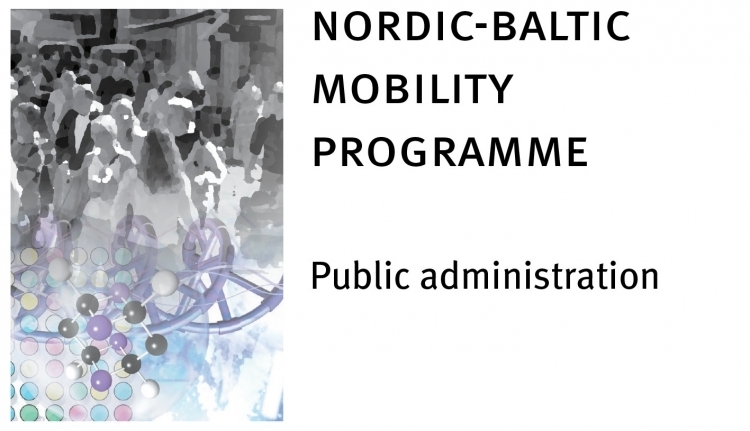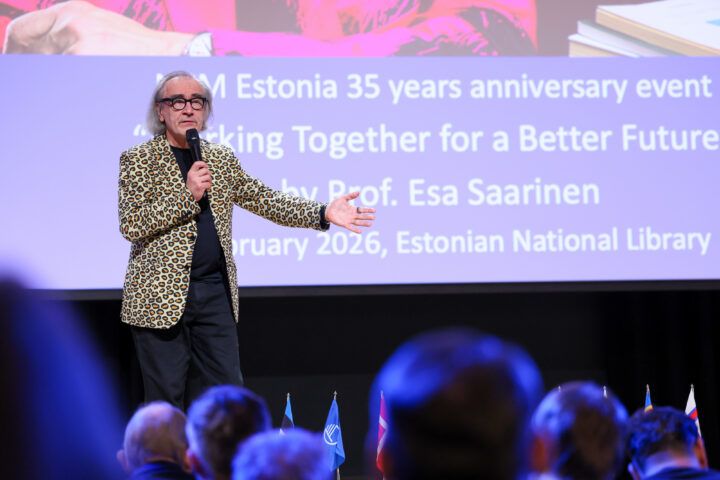NB Mobility programme for Public Administration helped the Office of the Chancellor of Justice of Estonia gain knowledge in Iceland and Sweden

Several successful mobility projects between the Nordic and Estonian partners have been fulfilled under the Nordic-Baltic Mobility programme for Public Administration during 2019-2020. One of the fine examples of these projects has been reported by Kertti Pilvik, Head of International Relations for the Chancellor of Justice of Estonia.
The main objective of the project was to enhance the capacity of the Office of the Chancellor of Justice of Estonia, the Inspection Visits Department, in monitoring prisons and police detention houses and to increase the effectiveness of the General Department in performing administrative functions. The project also helped to establish good cooperation relationships and personal contacts with the Nordic colleagues for further consultations and collaboration. To improve the needed knowledge and skills of the staff of the Chancellor of Justice, 3 advisers from the Inspection Visits Department visited the Office of the Icelandic Parliamentary Ombudsman and 5 staff members from the General Department visited the Swedish Parliamentary Ombudsmen in autumn 2019.
The study visit to Iceland focussed mainly on working methods of the Parliamentary Ombudsman of Iceland in monitoring prisons and police detention houses and on overall imprisonment and penal arrangements in Iceland. Among other things, the Chancellor of Justice’s advisers sought answers to questions about how balance between secure environment and social interaction of prisoners is ensured, whether prisoners have an obligation to work, what is the role of education and technology in rehabilitation of prisoners, how reintegration of prisoners into the society is organized, how supervision of detainees and medical assistance in police detention houses is arranged, etc. In addition to the Parliamentary Ombudsman, the advisers also had a great opportunity to visit Vernd (halfway house for prisoners), Stuðlar (a closed secure facility for youths 13-18 years), the main police station in Hverfisgata, the Prison and Probation Administration, the Hólmsheiði Prison and the Sogn open prison.
It can be noted that the system of detention in Iceland differs significantly from that of Estonia. In Iceland, detention is the most extreme measure and the emphasis is on the re-socialization of the convicted person instead. Above all, it was striking to convince how humane the organization of detention could be. It was also interesting to compare the Icelandic Ombudsman’s methodology for conducting and reporting on inspection visits with the Chancellor of Justice’s practice.
The purpose of the study visit to Sweden was to learn from the experiences of the Swedish colleagues in organizing administrative and supporting functions and to establish personal contacts with the Swedish colleagues. The focus of the study visit was on general organization of the civil service in Sweden, implementation of new data protection requirements (GDPR) in practice, document management and archiving, personnel management (incl. recruitment and selection, motivation of people, creation of a developing working environment), organization of internal cooperation and internal communication (incl. information systems and digital communication), relations with the media, creating and designing the image of a constitutional institution, clear language, and role of a language editor, administrating and supporting the tasks, which derive from international agreements (e.g. CRPD and NHRI), accounting and budgeting, exchange of information and cooperation with other agencies and civil society. The Swedish Parliamentary Ombudsman’s advisers also organized useful meetings with the Swedish Chancellor of Justice, the Swedish Agency for Government Employers (SAGE), the Agency for Digital Government (DIGG) and the Swedish Agency for Public Management.
One could make a conclusion that the Estonian civil service is ahead of Sweden in many areas (especially in terms of digital solutions), but in Sweden, on the other hand, the general civil service organization seems to be better thought out. There is also a much more liberal approach to the disclosure of information on public service activities in Sweden, despite the GDPR applicable to both countries. For example, the Swedish Parliamentary Ombudsman has a contract with a news agency and any complaint sent to the Ombudsman is immediately forwarded to the news agency. Only very sensitive data will be removed before the news is published, but generally, all information contained in the application is public.
The project resulted in increased knowledge transfer for mutual benefit on several administrative levels, experience exchange on best practices in respect of public administration and facilitation of harmonisation of standards and tighter cross-sectoral cooperation. Established close contacts with the ombudspersons in Nordic countries give a good base for future joint projects and collaboration. The parties of the project decided to continue with the regular consultations and meetings.
The study visits gave a valuable opportunity to learn from the mutual respective experiences and to discuss the best practices. We are hoping that the study visits will also create a base for further mutual collaboration projects and better exchange of information through personal contacts. The feedback from the advisers of the Chancellor of Justice as well as from the staff of the Nordic partners has been very positive. The study visits create personal close contacts, which is also a great benefit regarding future cooperation. This is a unique grant programme to encourage and maintain inter-institutional cooperation.


